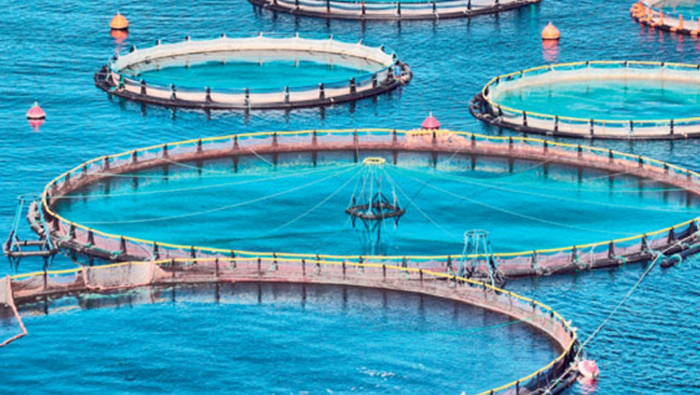
Muscat: The Ministry of Agriculture and Fisheries said that the Sultanate’s production of aquaculture in 2019 amounted to 1,054 tonnes, an increase of 133 per cent, compared to 2018, with a total value of OMR2 million.
Production was limited to two types, namely seabream with 862 tonnes that constituted 82 per cent of the total aquaculture production at a total value of OMR1,712,000. The other type, tilapia, constituted 18 per cent, with quantity production of 192 tonnes.
Aquaculture projects in the Sultanate are categorised into integrated aquaculture and commercial aquaculture projects. The integrated aquaculture projects are based on the integration between agricultural activity and aquaculture. It aims to optimise the use of land and water resources in a food production activity that contributes to food security. As for commercial aquaculture projects, most of them take place at sea or on land beside the sea.
Aquaculture is one of the fastest-growing food production systems in the world. It currently contributes 50 per cent of global fish production. This proportion will increase to 62 per cent by 2030, according to reports issued by the World Bank.
The Ministry of Agriculture and Fisheries, according to the outputs of the fish resources laboratories, “Tanfeeth”, seeks to increase the contribution of the aquaculture sector to the gross domestic product to reach OMR222 million by 2023, through several aquaculture projects, the most important of which are shrimp and abalone, and the marine cages for sea bream, cobia and Jackfish, in addition to seaweed.
The production of Indian white shrimp reached 352 tonnes in 2013. But the production fluctuated for years to decrease to 86 tonnes in 2016. In June 2018, the first commercial production of European Seabream started in a fish farm in the Wilayat of Quriyat that uses floating cages. Its production was 350 tonnes by the end of 2018. By the end of 2019, the production increased to 862 tonnes of these fish.
On the other hand, the integrated aquaculture witnessed a growth in the production of Tilapia fish, as production increased from 20 tonnes in 2015 to 192 tonnes in 2019.
The ministry hopes that the aquaculture sector will be one of the main pillars in developing and improving the utilisation of fish resources in the Sultanate and that this sector will be able to compete and meet the consumers' needs for high-quality water products in a manner compatible with the environment.
According to the statistics of the Aquaculture Development Department in the ministry, there are currently 23 integrated projects, in addition to 16 applications for commercial aquaculture, 8 of which have entered into force, to produce tilapia, shrimp and seabream.